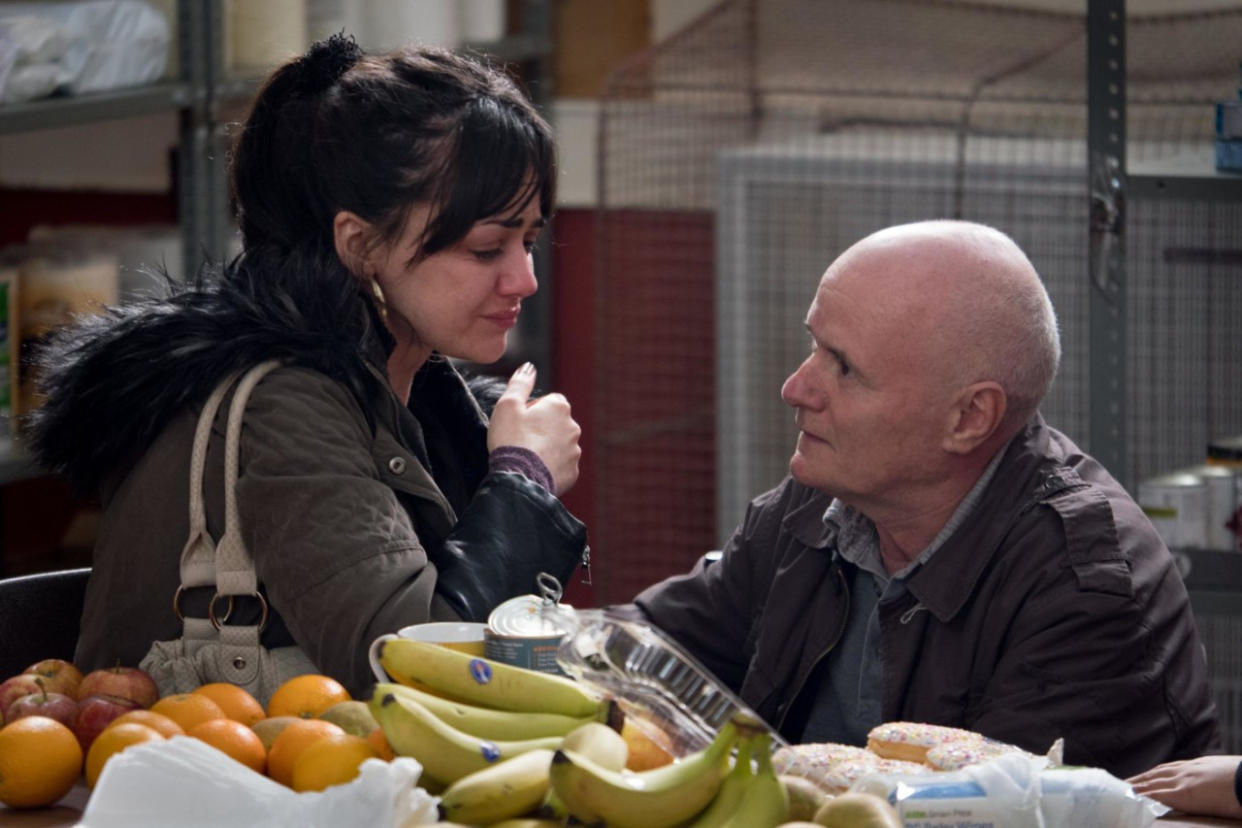Critics Divided Over Ken Loach's Palme d'Or Winner I, Daniel Blake

Ken Loach surprised all at Cannes yesterday, winning his second Palme d'Or, the highest prize at the annual film festival, for his movie ‘I, Daniel Blake’.
But it appears that the decision to award the 79-year-old director with the gong has split critics, some feeling that there were other deserving movies.
Few expected Loach to win for the Newcastle-set drama, about a carpenter who is unable to work following a heart attack, but has his benefits cut anyway.
- Ken Loach movie scoops Palme d’Or
- Shane Black Reveals His Idea For Lethal Weapon 5
- Olivia Munn Reveals Gruelling X-Men: Apocalypse Regime
And even fewer expected 'It’s Only The End Of The World’, directed by Xavier Dolan, to win second prize, the Grand Prix, after being universally slated by critics.
In the LA Times, film writer Justin Chang – who said the Dolan decision 'horrified’ the press audience at the prize-giving – has questioned the jury’s decision to give Loach the prize, lead as it was by 'Mad Max’ director George Miller.

In a piece title 'How George Miller’s Jury Got It Wrong’, he offers the view that several other films deserved the prize more, including German director Maren Ade’s 'Toni Erdmann’, Jim Jarmusch’s 'Paterson’ and Paul Verhoeven’s strong but controversial 'Elle’.
“'I, Daniel Blake’, [is] an appreciably passionate, sometimes stirring yet excessively contrived and self-congratulatory drama about the ravages of poverty and unemployment in the U.K.,” he writes.
“It’s a film that many in Cannes liked more than I did, and which drew widespread praise from British critics in particular, who can surely attest to the authenticity of its harsh depiction of their welfare state. But in handing Loach his second Palme (he won the first in 2006 for 'The Wind That Shakes the Barley’), Miller’s jury, deliberately or not, wound up favoring an angry, relevant message rather than a great work of cinema.”
And Chang is not alone in thinking that Loach’s latest work lacked nuance, coming across as heavy-handed in its message.

David Jenkins in Little White Lies accused the movie of appealing only 'to the people who are already on side with everything it has to say.
“As usual for Loach,” he writes, “this is cinema as a blunt instrument, used to hit hard and without much grace or sense of direction.
“It’s a largely artless work which takes no risks with its visual language and never thinks to show when it can tell.”
Though he gave it four stars out of five (by comparison, he gave the new Kristen Stewart movie 'Personal Shopper’ the full five out of five after seeing it at the festival), The Guardian’s Peter Bradshaw also saw issues with Loach’s film.
“[It] is indeed flawed, I would concede. There are a couple of very big scenes, probably too big, and I saw the ending coming 20 minutes before the movie begins,” he writes.
However, many critics lauded the movie, whether or not they agreed with the Palme d'Or decision.
Time Out’s Dave Calhoun called it 'a spare film, muted in colour - and all the more powerful and urgent for it’, while in Variety Owen Gleiberman called it 'one of Loach’s finest films, a drama of tender devastation that tells its story with an unblinking neorealist simplicity that goes right back to the plainspoken purity of Vittorio De Sica’.
'I, Daniel Blake’ will be released in the UK later this year.
Image credits: Sixteen Films/PA

 Yahoo Movies
Yahoo Movies 
